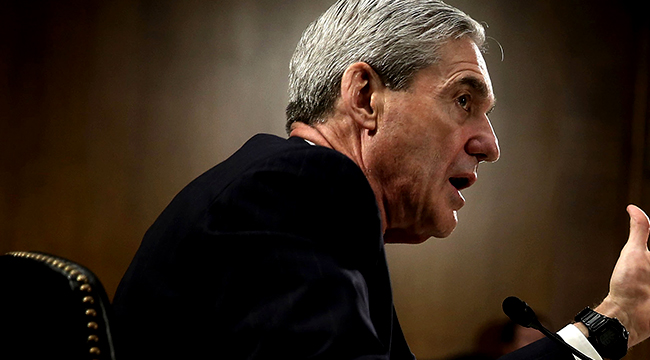
In the investigation into the Trump campaign’s connections to Russia, so far the damage from Robert Mueller’s special investigation has been shocking even for long-time policy wonks. Former campaign manager Paul Manafort is under indictment on multiple counts, most notably conspiracy against the United States. Michael Flynn has pleaded guilty to lying to the FBI. Now, if you listen to Trump, Robert Mueller is almost done. If you listen to anybody else, he’s only getting started despite moving faster on indictments and pleas than any special investigation in U.S. history.
Most people believe it’s a matter of time until Trump makes an attempt to fire Mueller, as a result. But can he? Does he have other options? And will that solve his problems or just make them worse?
- Trump can’t fire Mueller directly: Legally speaking, all Trump can do is order Rod Rosenstein, Mueller’s boss, to fire him. But Rosenstein can’t simply fire his own special prosecutor. John Dean, Nixon’s White House counsel and key to the Watergate conspiracy and cover-up attempts, explains why:
“[Mueller] can only be removed by personal action of the Attorney General (and since Sessions is recused, Deputy Attorney General Rosenstein). 28 CFR 600.7 states: “The Attorney General may remove a Special Counsel for misconduct, dereliction of duty, incapacity, conflict of interest, or for other good cause, including violation of Departmental policies. The Attorney General shall inform the Special Counsel in writing of the specific reason for his or her removal.” Unlike the summary firing of Archibald Cox by Nixon, to remove Mueller or any of his staff would require an investigation and proceeding by the Department of Justice, and would be subject to appeal in federal court.”
Notice that lately, right-wing pundits such as Sean Hannity have been harping on supposed conflicts of interest in Mueller’s team.
- In other words, if Rosenstein fires Mueller, he’ll need to have an excellent, clearly articulated reason to do so, and Mueller can contest it in court: Politicians have nightmares about the sheer circus that would result as Mueller, one of the most experienced prosecutors in the United States government, goes to court against a Trump appointee over that firing. Worse, Mueller’s contesting would mean Rosenstein would likely have to discuss what he was told by the President in open court. Imagine, for a moment, that Mueller basically proves in open court that he was fired on false pretenses. Not only would Rosenstein’s career be ruined, but also Mueller would have effectively proven obstruction of justice on the part of the President.
- So Rosenstein would likely refuse to fire Mueller, out of a sense of self-preservation if nothing else. Trump’s second option is to fire Rosenstein: In theory, all Trump has to do is fire Rosenstein and let Rachel Brand be promoted. If she won’t fire Mueller, he can fire her, and the next person in line will get the order. This is what happened during the infamous Saturday Night Massacre, where Attorney General Elliot Richardson and Deputy Attorney General William Ruckelshaus both resigned over Nixon’s order to fire special prosecutor Archibald Cox. Ultimately Nixon found Robert Bork, who fired Cox.
- That didn’t work for Nixon, as you might have guessed: Trump can probably find his Bork; that’s not the problem. What would be a severe problem is the very loud, very public firing of multiple public servants when Trump has claimed loudly and repeatedly that he’s not even under investigation in the first place, let alone at any risk of being convicted of a crime. Indeed, so far, none of those indicted or convicted have publicly connected Trump or his inner circle to anything. And if Trump were innocent, why would he be trying to force an end to the investigation?
- The investigation would not magically go away if Mueller got fired, either: Mueller is just one piece of the investigations. There’s also the Senate and House. While the House Intelligence Committee seems desperate to wrap up the investigation by the beginning of 2018, an attempt to fire Mueller would likely force them to keep it open. Whoever fired Mueller would likely have to go before Congress and explain their actions in detail. And it would also bring out the press in force. It likely wouldn’t even stall the investigation. Indeed, after firing Cox, Bork wound up appointing Leon Jaworski, who picked up right where Cox left off. It also turned public sentiment hard against Nixon. Granted and considering Trump’s current approval ratings, it’s difficult to imagine him somehow getting worse marks. But it’s possible.
Normally, this would stop even the brashest politician. Will it stop Trump? Good question. We’ll have to find out, as Mueller’s investigation unfolds.
